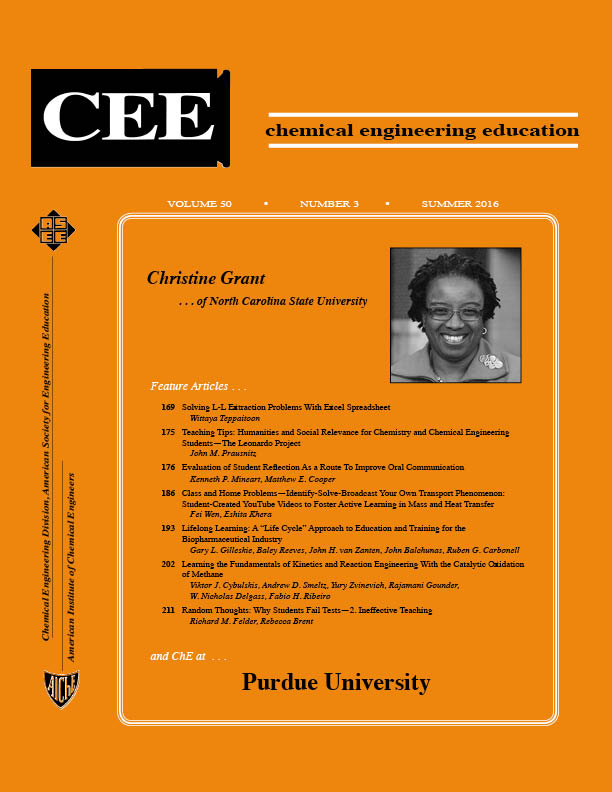Evaluation of Student Reflection As a Route To Improve Oral Communication
Abstract
This study describes the use of guided self-reflection and peer feedback activities to improve student oral communication in a large ChE class (n ≈ 100) setting. Student performance tracked throughout an experimental semester indicated both reflection activities accelerated improvement in oral communication over control; student perception of the method is also positive. Use of guided reflection activities as described here was found to add a modest 8.5 minutes/student group of active time investment for instructors.


